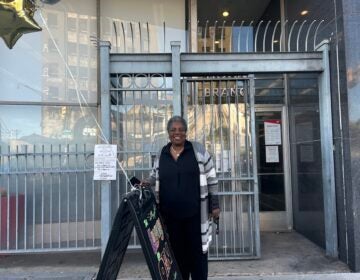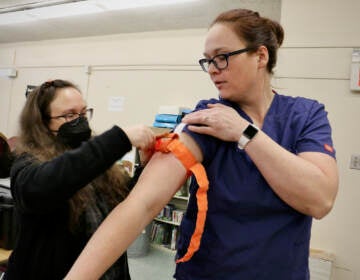‘You can’t go back to normal’: After police shooting, Nicetown-Tioga neighbors say there’s a lot of work to do
At a meeting at the Nicetown-Tioga Library about Wednesday’s shooting, neighbors told Councilmember Bass they want to see investment in their community.
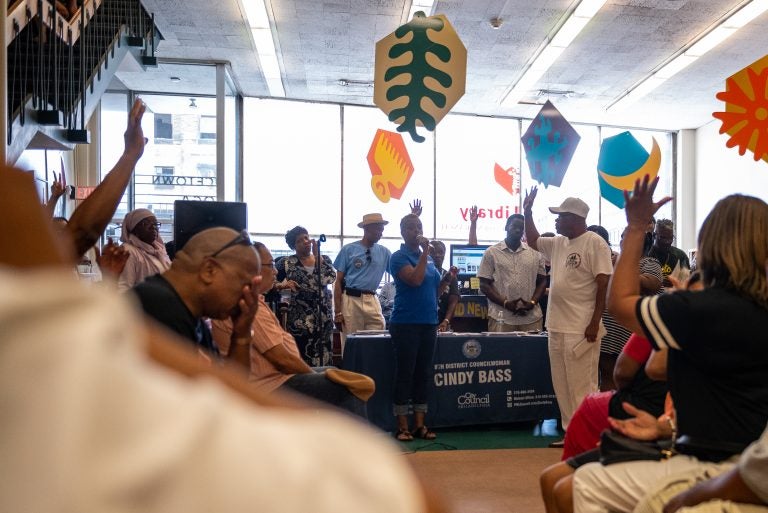
Hands are raised in response to Councilwoman Cindy Bass asking people who has experienced gun violence during a community meeting at the Nicetown-Tioga Library on Saturday, August 17, 2019. (Kriston Jae Bethel for WHYY)
Michael Abney says he has a lot of grievances with the police slogan “serve and protect.”
He was reminded of that during the shooting on Wednesday that injured six police officers during a search warrant gone awry in the Nicetown-Tioga neighborhood.
Abney said his daughter and grandkids were in the house next door to where suspect Maurice Hill barricaded himself and others during a seven-hour standoff with police that rocked the 3700 block of North 15th Street.
His family, like many others that night, was unable to enter or leave their homes, while the police negotiated with Hill to stop shooting and surrender.
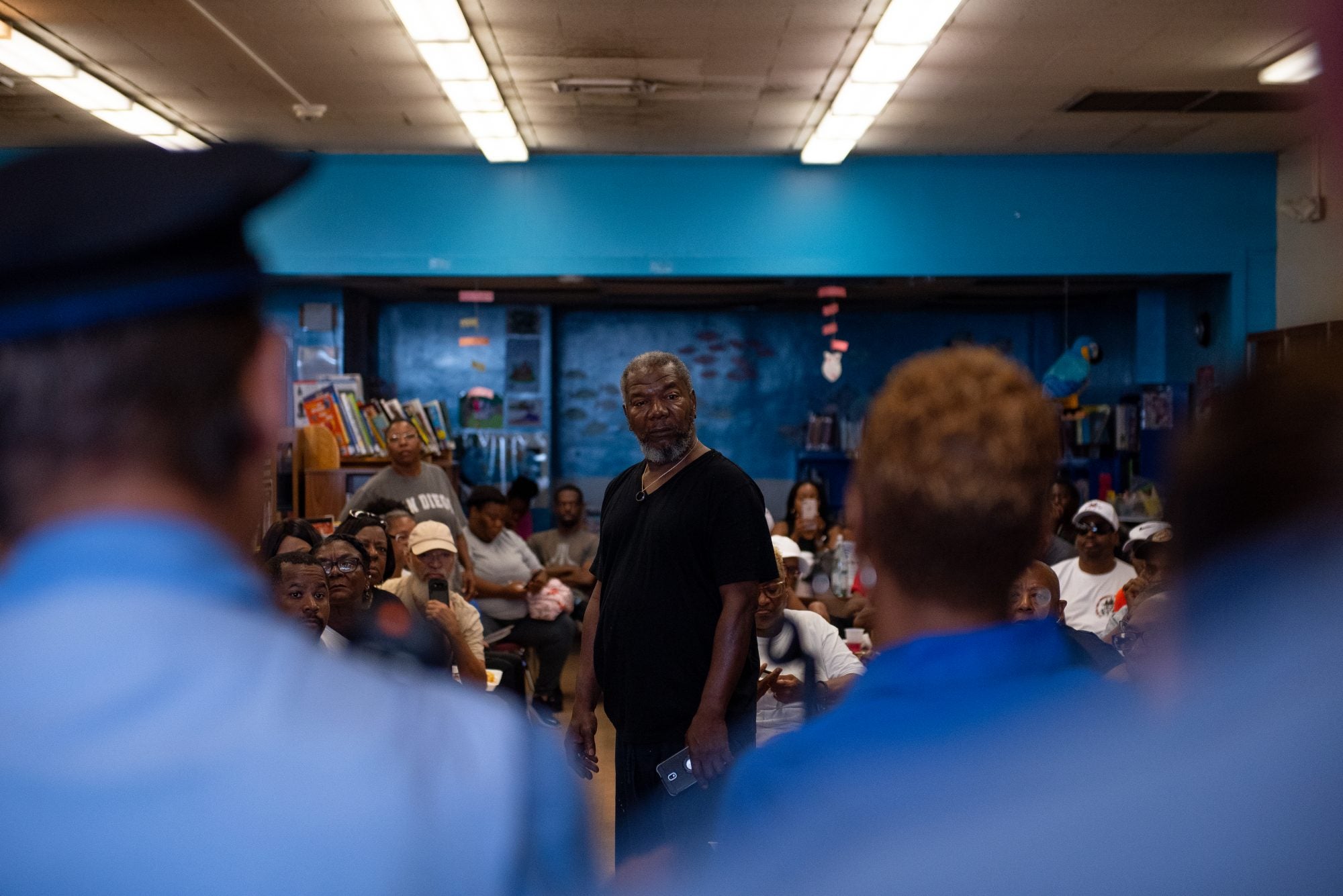
“The people in this neighborhood weren’t served and they weren’t protected,” said Abney during a community meeting hosted by Councilmember Cindy Bass at the Nicetown-Tioga Free Library on Saturday morning.
Just hours before the meeting started, Hill was arraigned and charged with attempted murder and other counts.
Around 100 people came out to hear from elected officials like Bass, State Sen. Sharif Street, Council President Darrell Clarke and representatives from the District Attorney’s Office and the Philadelphia Police Department, about where the community goes from here. Tables and chairs were zigzagged through the small library’s bookshelves while people live-streamed the discussion on their phones.
“This is a black neighborhood, so nobody cared,” Abney said. “This was callous. It was a nightmare to hear my granddaughter and grandkids hollering and screaming next door. They didn’t get out of the house until 11 something, in the rain.”
Bass told Abney that should have never happened to his family. She added that she recognizes there’s work to be done to reconcile the relationship between the police and African-American communities and it’s something her office is working on.
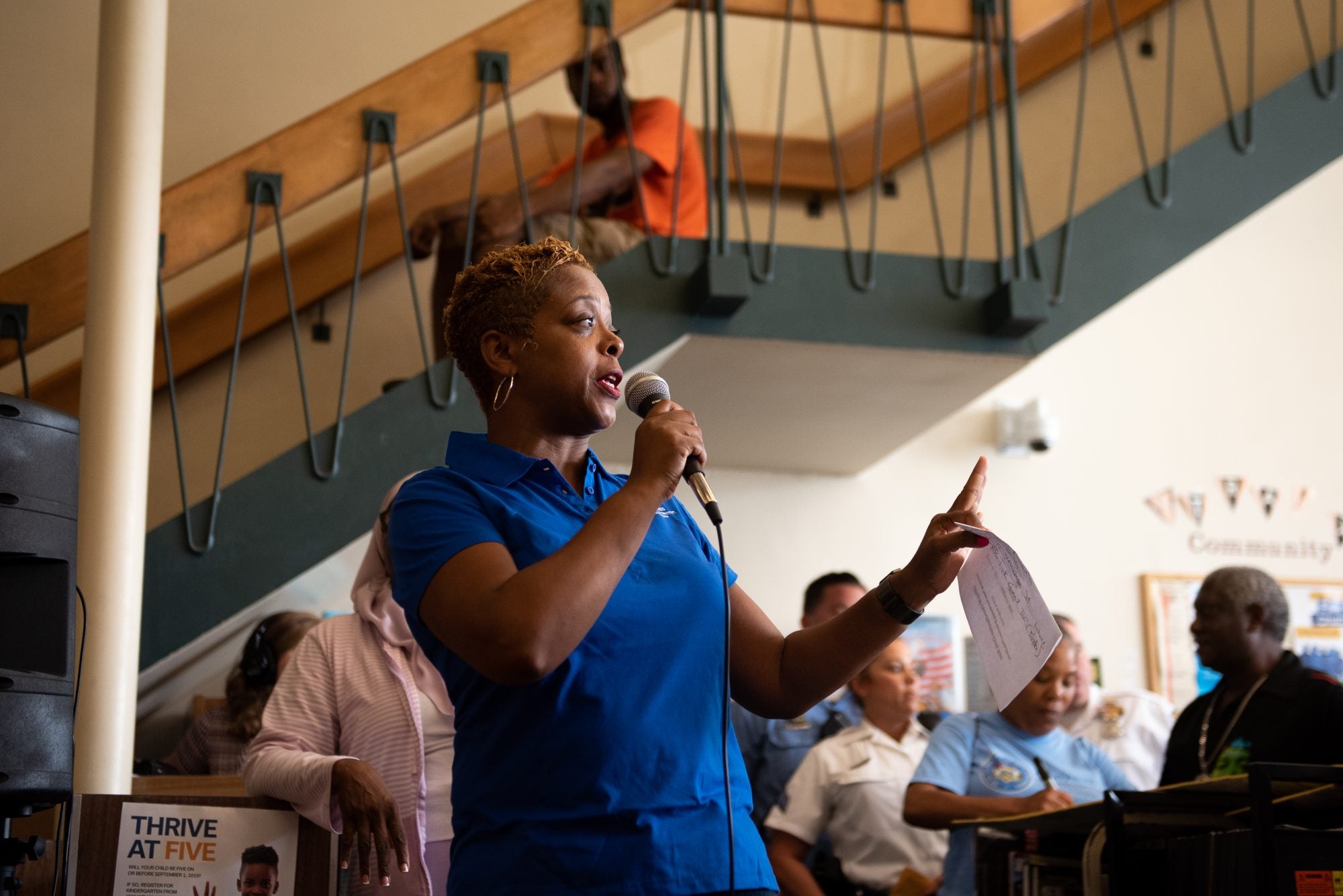
Bass said she planned on doing more listening than talking, take notes, and come back to the community with a plan to fix the systemic issues plaguing the neighborhood.
But many in attendance said they’re tired of meetings. They’re tired of hearing about gun control measures and being told to head to the polls and vote. Instead, they want to see elected officials deal with the issues that exacerbate gun violence — things like trauma, generational poverty, displacement and lack of economic investment and job opportunities.
Shereda Cromwell said she became a committeeperson because she didn’t like what she saw happening in her community, the 11th ward.
“Senator and Councilwoman Bass, I don’t feel represented by you,” Cromwell said to Bass and Street. “I don’t feel represented when I can’t send my kids to Heritage Park because there was a shooting there. I don’t feel represented when I can’t send my kids to the schools in the neighborhood because they are failing.”
Cromwell said she thought Saturday’s meeting was going to be about action and next steps for how Nicetown-Tioga can heal. But to her, it just felt like another meeting for the sake of meeting.
Councilmember Bass said residents in the neighborhood have significant trauma to deal with and let them know about the services available through the city’s Department of Behavioral Health and Intellectual disAbility Services, as well as other outreach efforts through Victim Services and the Office of Violence Prevention.
“I saw the press coverage in the last couple of days afterwards and people were saying ‘Oh, it’s back to normal,’” Bass said about the shooting. “There will be nothing normal about what happens going forward because you can’t just erase it as if it didn’t happen. There is some trauma that has been inflicted upon us that we must deal with if we are going to get this right and fix our neighborhood.”
Council President Darrell Clarke, who represents nearby communities, said the reason the shooting was recognized on a national level is that it was six police officers who were shot. He said it’s necessary to acknowledge that shootings happen every day in Philadelphia.
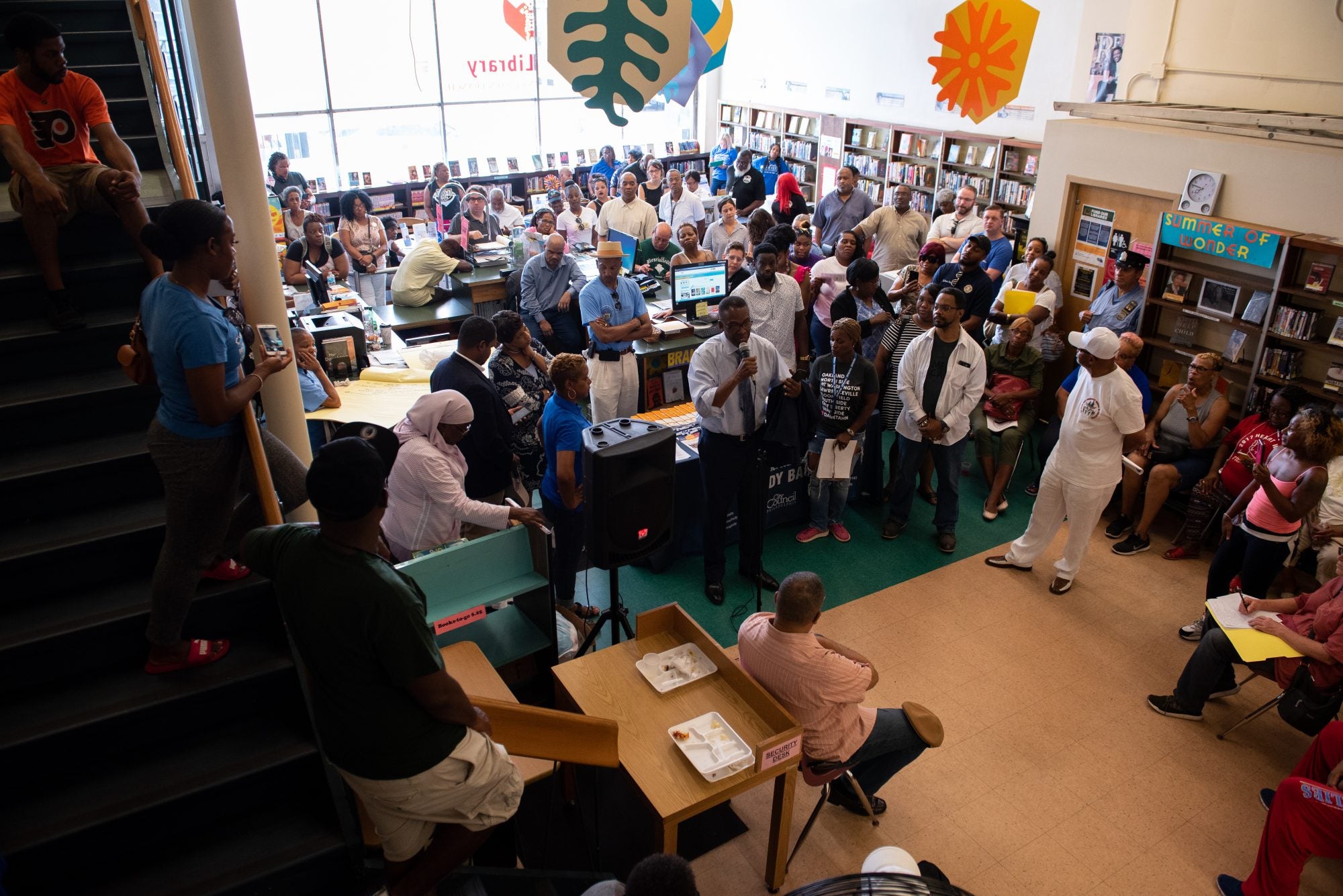
Just the next day, five people were shot in Ogontz, a neighborhood north of Nicetown-Tioga. It didn’t get nearly as much attention as Wednesday’s shooting.
“This is an ongoing event and they talk about mass shootings on a national level,” Clarke said. “Unfortunately we got mass shootings like several times in the City of Philadelphia but what we can’t do is get immune to this. I live in North Philly like everyone else, you kind of hear gunshots, and you’re like ‘Oh well.’”
Cromwell and some others in attendance took offense to Clarke’s comments about being desensitized to gun violence.
“I will never be used to the sound of gunshots,” Cromwell said. “I will never be used to telling my son, who is autistic, you can’t play in front of our house, because you don’t understand when you hear a shooting to run. I will never get used to having those conversations with my children. Something has to change.”
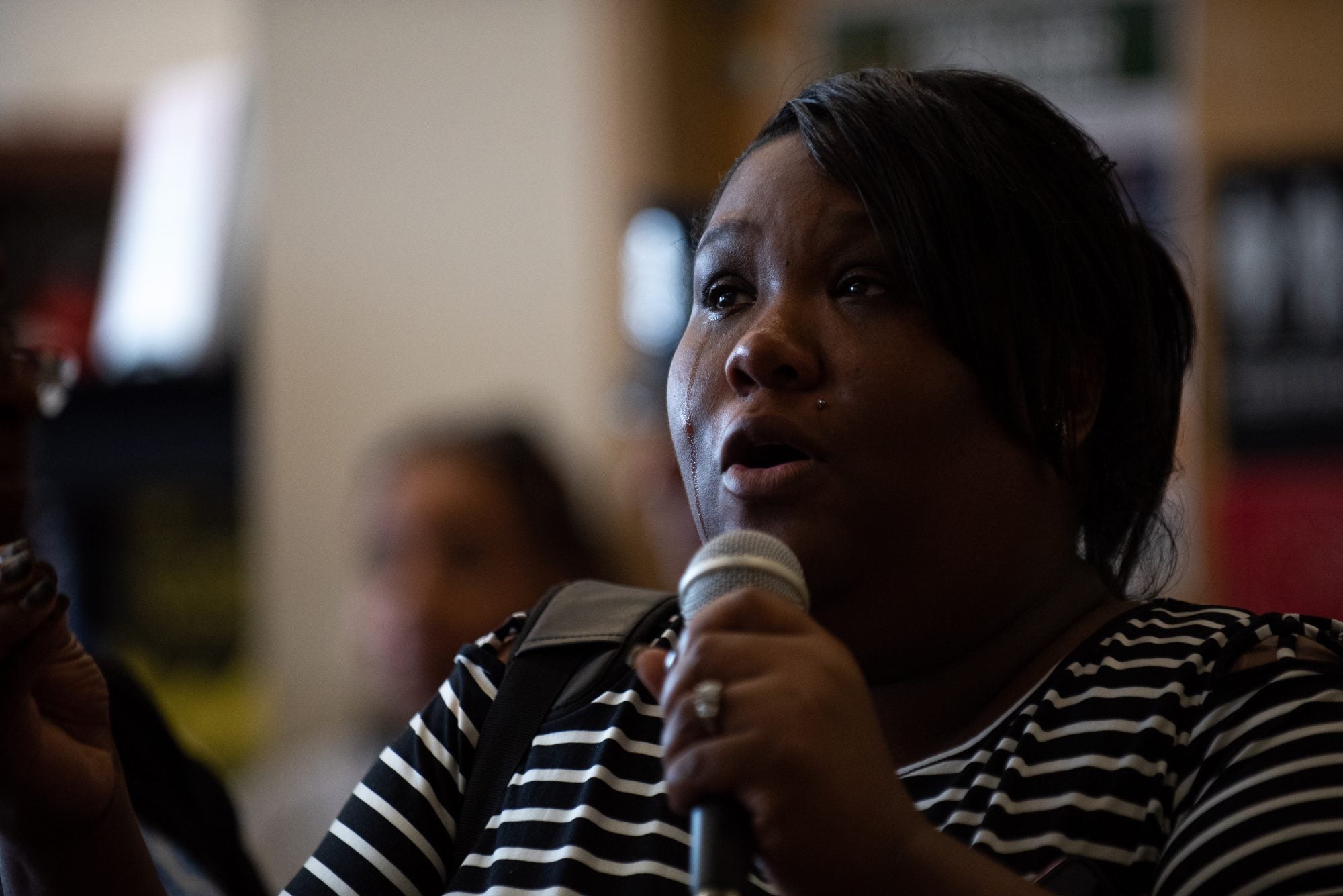
Khadija Bowens, who grew up in the neighborhood, discussed how some videos online that circulated framed the community as taunting police officers. She was concerned that they were missing context.
“We had officers stick their middle fingers up at us, we had officers almost tackle a man because he had a drone and they didn’t want him to have a drone,” Bowens said. “There were a lot of things that the media didn’t cover.”
Bowens, who played basketball at Temple University in the 2000s, runs a basketball nonprofit and tournaments in the neighborhood. She said she worries about the trauma inflicted on the children who watched everything unfold on Wednesday.
She also agrees with Bass that there’s a major disconnect between the police and the community that needs to be addressed.
“What’s next?” Bowens said. “We cannot expect for something like this to happen and we go on and say we are back to normal. You can’t go back to normal the next day after something as traumatic as that has happened.”
“The people that live in this community, it’s poverty-stricken,” she added. “There aren’t jobs, there’s a lack of education, there’s a lack of resources, what do you think this community is going to breed if there’s no resources?”
WHYY is your source for fact-based, in-depth journalism and information. As a nonprofit organization, we rely on financial support from readers like you. Please give today.



